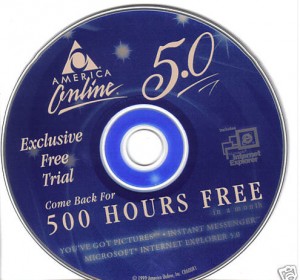 I’ve been getting a feeling that EMR systems, while here, are a decade late.
I’ve been getting a feeling that EMR systems, while here, are a decade late.
While I am totally in favor of digitizing the patient, what EMR vendors set out to do – capture patient encounter information in a structured way – is no longer appropriate or scalable, at least in the way they chose that predates the internet boom of the 2000s.
The tools, such as the social web, mobile, and unstructured text mining (all developed to a high extent in the last 10 years), mean that we no longer have to create long forms and forced workflows to capture rich information on patients.
In fact, I feel that we are collecting less and irritating the care giver and patient in the process.
Where does the connection come in with AOL? In the 90s, AOL led the way in creating a interactive online experience of content, exploration, and apps. Except, when the open internet came around with a better, more dynamic, faster, and more scalable experience of content, exploration, and apps, AOL ended up, by comparison, looking formulaic, overly structured, and confining.
Kinda like what I hear about EMRs these days.
Link The EHR debate: fighting the last war?
Yes we’re having the wrong fight by focusing on old problems. The EMRs that are producing the studies we’re fighting about are the current equivalent of 1990s EPR implementations. In general they’re hard to use and require lots of money and training to produce halfway decent results.
What do you think? What is the alternative?
Image via TooDifficult.com